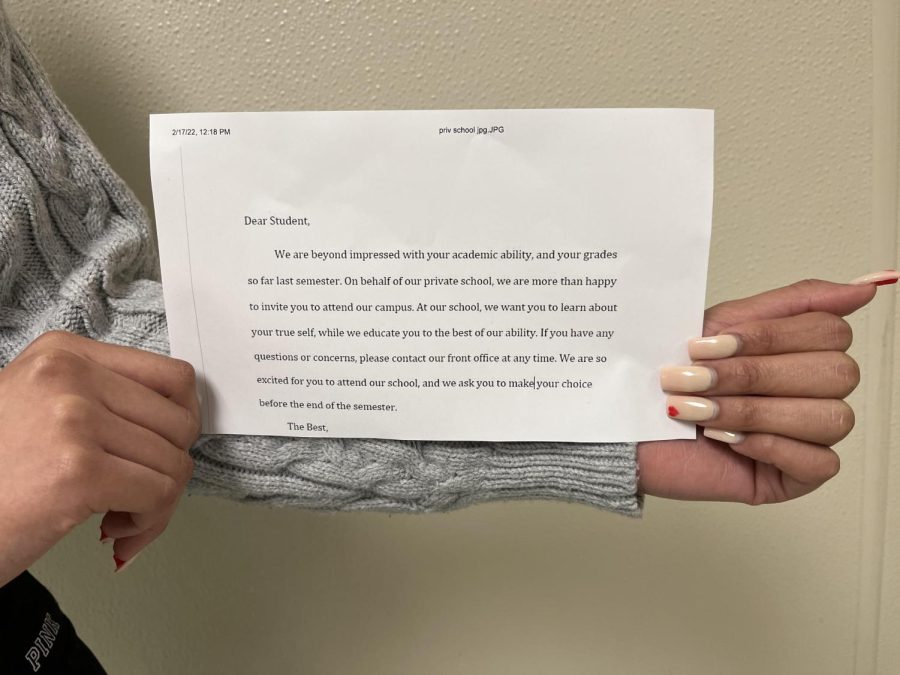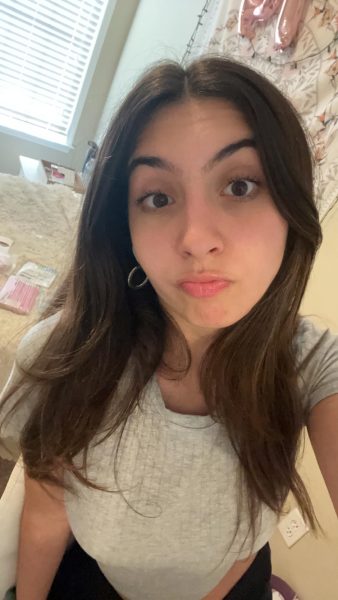Ending the private vs. public school debate
As time progresses, parents and students desire the finest option for education available. The government does not provide public schools with the essential resources needed to properly educate students. As a result, children attending public schools slowly lose motivation to learn. Private schools educate students in an intricate way and provide encouragement for schooling and instruction.
February 23, 2022
Parents nationwide frequently consider enrolling their children in private schools, but they do not want to pay the lofty cost of tuition. In Georgia, parents who choose for their child to attend a private high school spend around $10,000 annually, paying more than $40,000 for a high school education. Even though the cost of private schooling runs high, parents should enroll their children regardless because private schools provide a superb quality of education that public schools simply can not deliver.
More than 1.2 million students drop out of public school per year due to a shortage of teachers, lack of academic support and overcrowding. These negative aspects within public schools make students feel like they do not belong in the place where they spend eight hours of their day. To disperse overcrowding, public schools created leveled classes to equally divide students based on their learning abilities. However, they still fail to bring forth solutions to students who struggle academically and render them the support they need to learn their state’s course standards. Several public school students switch to private schools or unenroll from school because they can not connect with the curriculum provided by their educators.
“The education at [the public school I went to] was not bad per se, it just was not executed correctly, and I was never able to fully understand what I was learning. The quality [of private school education] is ten times better. I am extremely close with my counselors, and I feel comfortable going to them when I need help with anything. They are always available for me when I need help or someone to talk to,” North Cobb Christian High School, senior Lilly Aabye said.
Additionally, private school districts create schools corresponding to religious beliefs. Religious schools provide a distinct education that students and families can build a connection with. The students benefit from learning academically while simultaneously exploring their religion y. Religiously affiliated schools assist students to effortlessly make friends because they share a common belief. Students excel in schools in which the local administration sets a central focal point. Common themes help students connect with their education, and make students crave learning.
“I have always believed that private and public school teachers care deeply about their profession and want to do well for their students. My sense of the key difference in public and private schools is mission, size and scope. Private schools, in many cases, are able to have a focused mission, which allows those schools and teachers to focus on student learning that is aligned with the mission. For example, the school may have a mission to serve only students with dyslexia. Public schools, on the other hand, have a much broader mission and have to serve all students, which is incredibly admirable and at the same time, quite challenging,” the head of The Walker School Jack Hall said.
Parents and students in favor of public schools frequently argue children attending private schools will never develop the social skills they need to succeed in the future. Private schools tend to stand short of both socioeconomic and racial diversity. White children make up 67% of all private school children nationwide because the average white household makes around 15% more than a people of color (POC) household. The private school serves as a financial conflict to several races, but if the government avoids discriminating against POC financially, then the diversity in private schools will spike. Several private schools recently attempted to confront a lack of diversity within their school by adding courses exhibiting America’s true history and incorporating authors from various racial backgrounds.
Teaching students at a private school will always allow a deeper quality of learning because of the low student-to-teacher ratio. The average private school obtains a low 12 to 1 student-to-teacher ratio, allowing for fewer behavioral issues and more college preparation. Students perform effectively in environments where the teachers can devote their time to the students’ personal and academic needs. Sadly, government funding does not provide schools with enough money to educate students the way they need. Students must attend a private school to achieve the high quality of education they deserve.







